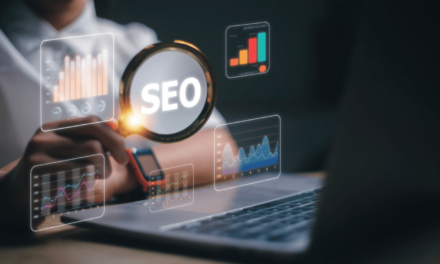Introduction
In the world of Search Engine Optimization (SEO), website performance is crucial. One of the essential metrics that search engines consider is the Page Layout Content (LCP) score. This score measures how fast a webpage loads its main content. In this article, we will delve into the importance of Page LCP Score, how it affects your website’s SEO ranking, and ways to improve it.
What is Page LCP Score?
Page LCP Score is a metric that measures the loading performance of a webpage. Specifically, it focuses on the time it takes for the largest content element on the screen to become visible to the user. This content element is typically an image, video, or other media that holds vital information about the page’s main content.
Why is Page LCP Score Important for SEO?
Page LCP Score plays a crucial role in determining your website’s search engine ranking. Search engines, like Google, prioritize user experience, and slow-loading webpages can lead to a poor user experience. If your website has a high LCP score, it may get penalized in search rankings, making it difficult for potential visitors to find your site.
Factors Affecting Page LCP Score
Several factors can impact your website’s LCP score. Understanding these factors is essential for optimizing your page loading performance. Let’s explore them:
1. Server Response Time
The time it takes for your web server to respond to a user’s request can significantly affect the LCP score. Slow server response times delay the entire loading process, resulting in a high LCP score.
2. Render-Blocking Resources
CSS and JavaScript resources that block the rendering of a page can negatively impact the LCP score. Optimizing these resources helps speed up the loading time.
3. Large JavaScript and CSS Files
Unnecessarily large JavaScript and CSS files can slow down your webpage’s loading speed, affecting the LCP score. Compressing and minifying these files can improve performance.
4. Slow Loading Images and Videos
Images and videos that take too long to load contribute to a high LCP score. Properly optimizing and compressing media files can lead to a faster loading experience.
How to Improve Page LCP Score?
To improve your Page LCP Score, consider implementing the following strategies:
1. Optimize Server Response Time
Invest in a reliable web hosting service that ensures fast server response times. A well-optimized server can significantly reduce the time it takes for your webpage to load.
2. Minimize Render-Blocking Resources
Identify and minimize CSS and JavaScript files that block the rendering of your page. Asynchronous loading and deferring non-essential resources can help improve loading speed.
3. Optimize JavaScript and CSS Files
Compress and minify JavaScript and CSS files to reduce their size without compromising functionality. This optimization can lead to faster loading times.
4. Compress Images and Videos
Resize and compress images and videos to reduce their file size. Using modern image formats and lazy loading can also help improve the LCP score.
Measuring Page LCP Score
Various tools and services are available to measure your Page LCP Score. Google’s PageSpeed Insights and other web performance tools can provide valuable insights into your webpage’s loading speed and LCP score.
LCP Score Benchmarks
Different industries may have varying LCP score benchmarks. It’s essential to set realistic goals based on your industry’s standards to stay competitive in search rankings.
The Relationship Between LCP and User Experience
A good Page LCP Score is directly related to a positive user experience. Websites with faster loading times tend to have lower bounce rates and higher user engagement.
LCP Score and Mobile-Friendly Websites
Mobile-friendliness is critical for SEO, and LCP score plays a significant role in mobile search rankings. Ensure that your website is optimized for mobile devices to achieve a better LCP score.
Core Web Vitals and SEO Ranking
In addition to LCP, Core Web Vitals like First Input Delay (FID) and Cumulative Layout Shift (CLS) are also essential for SEO ranking. Together, they form a comprehensive evaluation of your website’s user experience.
Tips to Maintain a Good Page LCP Score
Regularly monitor and optimize your website’s performance to maintain a good Page LCP Score. Conduct periodic audits to identify and address potential issues that could affect loading times.
Importance of Regular Website Maintenance
Keeping your website up-to-date and regularly maintained is crucial for sustainable SEO success. Regular maintenance ensures that your website remains fast, secure, and user-friendly.
Conclusion
In conclusion, the Page LCP Score is a vital metric that directly impacts your website’s SEO ranking. A fast-loading webpage not only improves your search engine visibility but also enhances the overall user experience. By understanding the factors affecting LCP score and implementing optimization strategies, you can ensure that your website remains competitive in the ever-evolving digital landscape.
FAQs
- What is the ideal Page LCP Score?
The ideal LCP score is under 2.5 seconds. However, aiming for a score below 4 seconds is generally considered good. - Can a good LCP score compensate for poor content?
While a good LCP score is essential for user experience, high-quality content remains crucial for website success. - Does LCP only affect desktop websites?
No, LCP is equally important for mobile websites, especially considering the increasing number of mobile users. - Are there any free tools to measure LCP?
Yes, Google’s PageSpeed Insights and other online tools offer free LCP measurements. - How often should I check my LCP score?
Regularly monitor your LCP score and conduct website performance audits at least once every quarter.





